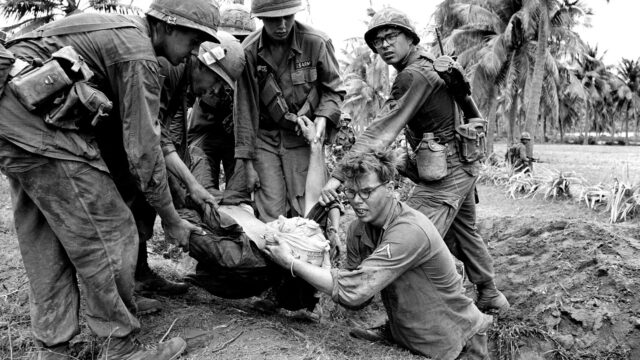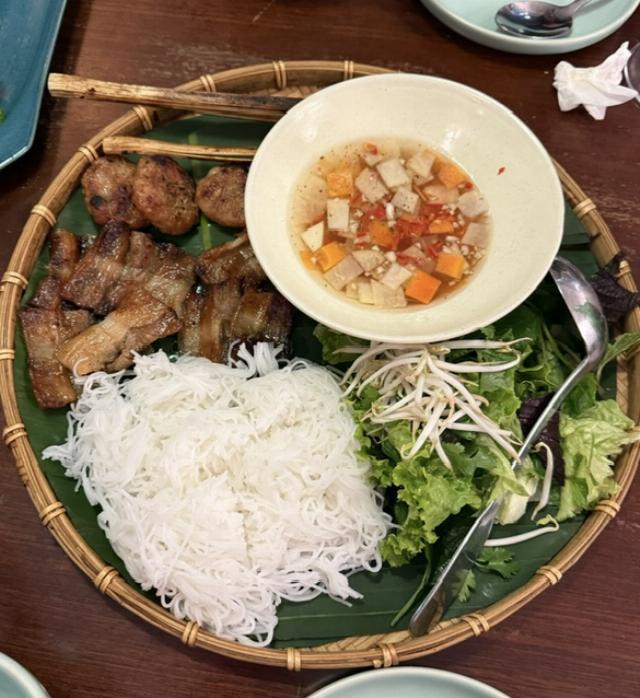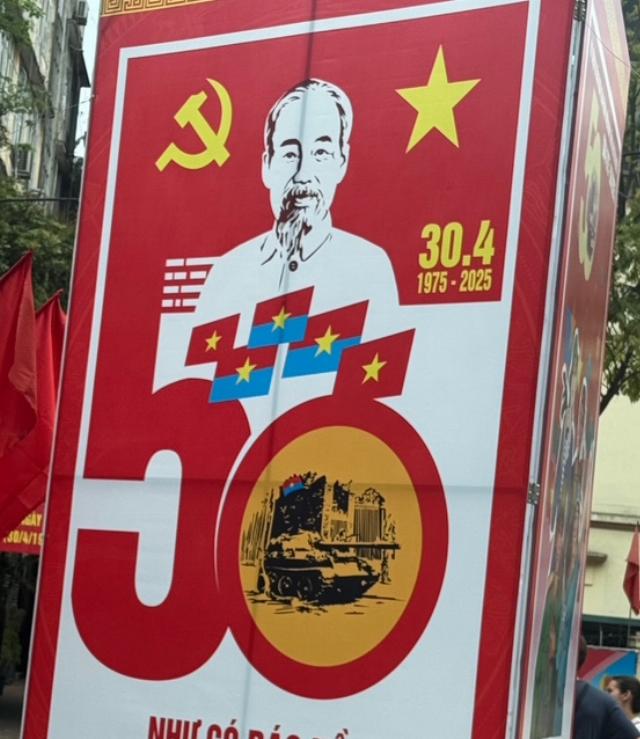A Visitor’s Reflection on the Vietnam War

Without foresight, your correspondent was in Hanoi on the 50th anniversary of the fall of Saigon, traveling after to the countryside bordering Laos. Herewith an unscientific reflection on Vietnam, the war, and its aftermath.
For anyone of my generation, Vietnam was not a war. It was the war: polarizing, divisive, the first American war fought and ultimately conceded by the media AKA Walter Cronkite, nightly body counts, place names of indelible memory, Tonkin, Da Nang, Khe Sanh, Tet, the Ho Chi Minh Trail, Nixon’s 1972 bombing of Hanoi and Haiphong, John McCain’s Hanoi Hilton. The ending was as abrupt as the war was long, a rooftop helicopter abandoning desperate souls on a staircase, even as we forsook our allies in the South.
How different the picture looks from Vietnam today. Of course the country is socialist, perhaps even communist, but unlike anything that can be caricatured. Private enterprise rules. Family comes before all. The nation is united by respect for elders and remembrance of family ancestors. Officially, Vietnam is an atheist country, but it includes 38% Buddhists, perhaps quite a bit higher unofficially, and 12% Catholics. The balance is non-religious, an increasing trend among the young, and followers of indigenous religions.
The country is booming economically. Politically, Vietnam fears China above all, whereas the U.S. is its greatest trading partner, accounting for roughly a third of total GDP. Vietnam buys weapons from Israel and maintains excellent diplomatic and economic relations with the U.S., South Korea, and Japan.
At 100 million people, Vietnam has the largest regional population and is well on its way to becoming the dominant economic power in Southeast Asia. It already is a tourist Mecca, with more than 22 million visitors expected in 2025 and growing. There is not a trace, zero, of observable resentment or anger at the U.S. for the Vietnam war, which here is simply remembered, and celebrated, as the war of reunification.
From a U.S. perspective, the war was dominated by a metaphor: the falling domino. With the passage of time, it is evident that this image irreparably harmed America — 58,000 war dead, 3.7 million American draftees and volunteers, the wounded warriors and MIAs, a fractured polity, and the debilitating loss of confidence from which we suffer to this day.
For no reason.
Vietnam has 2,000 years of experience being threatened and ruled by China. The Vietnamese regimes that chased out China are, and always have been, venerated. The brutal French occupation that began in 1858 and lasted until 1954 strengthened Vietnam’s obsession with defending itself from foreign rule. Given this history, it is an absurdity that a war of national unification would in turn lead Vietnam to become the domino of China, or Vietnam’s other wartime sponsor, the Soviet Union.
In fact, it never happened. Even during the war, when North Vietnam was desperate for war materiel, Ho Chi Minh refused China’s offer to send drivers with its trucks. For Ho Chi Minh, trucks could be paid for, but Chinese drivers killed in war would create an unredeemable obligation and a foothold.
Even to the present, Vietnam, unlike Cambodia, has refused China’s offer for investment zones with a 99-year lease. The ancient saying, “beware the northern wind,” has been Vietnam’s guiding star from time immemorial. Massive protests in 2018 permanently derailed the investment scheme with street banners: “No leasing land to China even for one day.”
Vietnam maintains cordial relations with China, including an invitation to participate in the April 30 military parade in Ho Chi Minh City, formerly Saigon. More noteworthy, Hanoi on this day was filled with vacationing families, the milestone marked solely by evening fireworks at the main city lake. In the nation’s capital, no speeches, no pomp, no military, which is perhaps the best evidence of Vietnam’s genuine reconciliation between North and South, present and past. Fifty years on, the U.S. has disappeared from view. From a Vietnamese perspective, the sole meaning of the war is an independent, unified nation.
Looking ahead, wariness of China, backed by a strong military, is the rule. Vietnam has tied its fortune to non-aligned status. A better indicator of Vietnamese sympathies is the answer given when asked where the best place to live outside Vietnam would be. The instant response was the United States, followed by the comment, “My aunt was successful in business here and now lives in Salt Lake City.”

Vietnam never was, and never will be, the domino of communist China. What a tragic American misreading of Vietnamese history and politics.
Hanoi today has a population of 9 million. With 8 million motorbikes, plentiful cars, and relatively few traffic signals, crossing the street is an adventure. There is not a policeman or soldier in sight. Street crime is virtually nonexistent.
The torrent of fast-moving traffic backdrops a dizzying array of stores, from repair shops to the world’s best known brands, the freshest street food and not-to-be-missed Vietnamese black or egg cream coffee. Navigation advice to the tourist is welcome and an inadvertent summary of Vietnamese strategy. “Hold out your arm, never go backward, wind your way safely by moving steadily forward.”
So what are the pitfalls facing Vietnam? One never wants to be the Walter Duranty of visitors, the New York Times reporter who shamefully wrote glowing accounts of Stalinist Russia.
It is well understood that criticism of the government, online or otherwise, is not permitted. There is corruption. For a visitor, the party’s only visible presence is the mandatory red flag flying in front of every home and business. At the same time, pride in the flag and Vietnam itself are clearly genuine, as many families wear flag shirts, especially the children.
But beyond that, the real pressure is the one facing all successful economies of late — namely, inflationary cost of living and most especially the unaffordable cost of city housing. Even on a good salary, it can take a generation of savings even to think about owning an apartment in Hanoi. Instead, as in New York, it means rental apartments, with a commute, and many roommates.

In the countryside, plentiful land is leading to a housing boom. In the area visited near Laos, of incredible physical beauty, and hence tourism, one witnesses many, many new homes being constructed, including smart-looking homestay inns, on dramatic ridge lines, in small towns, and on the road from here to somewhere. Prosperity is in the air, supported by fertile rice fields, fish farms, factories, small industry, hard work, all owned by private enterprise. And now well deserved tourism.
Bigger questions of U.S. foreign policy should not be answered on the back of Vietnam. But at least for this visitor, it seems truthful to say Vietnam is a better country for being reunited. It is not a domino of China. And perhaps controversially, especially in light of the 2 million South Vietnamese forced to flee the country after 1975, and some half-million killed in retribution post-reunification, the U.S. had no national interest in fighting the Vietnam War.
https://www.americanthinker.com/articles/2025/05/a_visitor_s_reflection_on_the_vietnam_war.html
